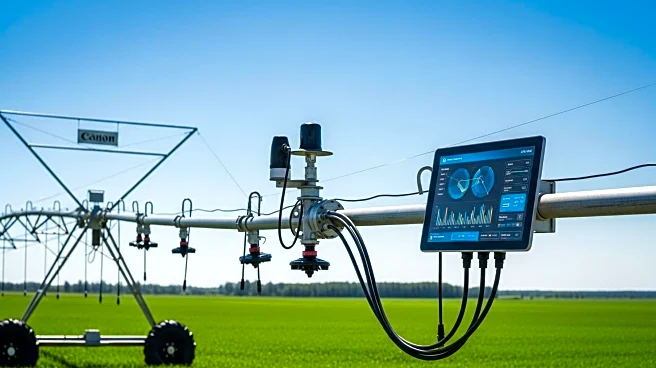What is the story about?
What's Happening?
A recent study published in Agronomy suggests that integrating remote sensing, agro-meteorology, and wireless sensor networks can significantly reduce water usage in agriculture without compromising crop yields. This approach, termed data fusion, is particularly beneficial for high-value fruit crops like mango, avocado, and vineyards. The study reviewed 92 studies and found that combining these technologies improves the accuracy of crop water-demand estimates, potentially reducing water consumption by up to 30%. The integration of these technologies allows for precise irrigation decision-making, addressing water stress during critical growth stages.
Why It's Important?
The integration of advanced technologies in agriculture is crucial as climate change and water scarcity pose increasing challenges to food production. By optimizing water usage, farmers can maintain productivity while conserving resources, which is vital for sustainable agriculture. This approach could benefit U.S. agriculture by enhancing efficiency and reducing environmental impact. However, the adoption of such technologies faces barriers, including high costs and the need for calibration to local conditions. Overcoming these challenges could lead to widespread benefits for both large-scale and smaller farms.
What's Next?
The future of smart irrigation may involve artificial intelligence and machine learning to further refine water management strategies. Developing low-cost Internet of Things platforms could make these technologies more accessible to farmers. Collaboration among researchers, policymakers, and farmers will be essential to address issues of calibration, accessibility, and governance. Successful integration could lead to a new era of precision irrigation, balancing productivity with sustainability.
Beyond the Headlines
The ethical and cultural implications of adopting high-tech solutions in agriculture include ensuring equitable access to these technologies across different socio-economic groups. The potential for digital twin models to simulate farming strategies before implementation could revolutionize agricultural practices, but also raises questions about data privacy and the digital divide.















